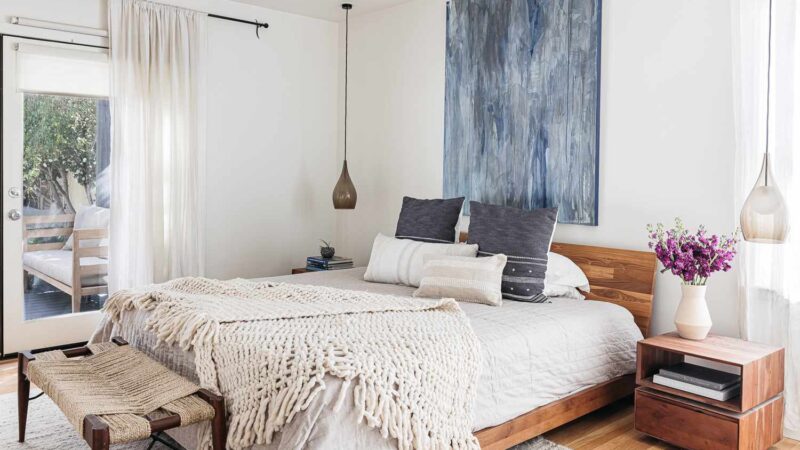Understanding Mortgages for First Time Buyers

Navigating the world of mortgages might seem daunting at first, but understanding the basics can make the process smoother and less intimidating. As you embark on your journey to buying your first home, it’s essential to get a handle on what mortgages are and the different types available.
Key Takeaways
- Check out first time mortgage buyer uk guide provided by Property Basement.
- Understanding mortgage types and terms: First time buyers should familiarise themselves with various mortgage types such as repayment, interest only, fixed rate, and tracker mortgages to find the best fit for their financial situation.
- Financial preparation is crucial: Assess your financial readiness by evaluating your income, expenses, and credit score, and start saving for a deposit. A strong financial standing can enhance your chances of securing a favourable mortgage.
- Be aware of additional costs: Beyond the property price, first time buyers must consider conveyancing fees, stamp duty, survey costs, and other expenses like removal costs and insurance.
- Explore government schemes: Schemes like Help to Buy and Shared Ownership can provide significant financial support, making homeownership more accessible for first time buyers.
- Choosing and buying a property: Carefully research and select a property that meets your needs, negotiate the price effectively, and understand the steps from making an offer to completion to ensure a smooth buying process.
What Is a Mortgage?
A mortgage is essentially a loan from a bank or building society that allows you to buy a property. You agree to pay back the loan, plus interest, over a set period, typically 25 years. However, it’s worth noting that the length can vary depending on individual agreements. The property serves as collateral, meaning the lender can repossess it if you fail to keep up with repayments.
Mortgage contracts outline important details, including the interest rate, monthly payments, and terms for early repayment. Staying informed about these aspects helps you make sound financial decisions and avoid surprises down the line.
Different Types of Mortgages Available
There are various types of mortgages, each suited to different needs and situations. Whether you’re looking for manageable monthly payments or seeking to pay off your mortgage quickly, there’s likely an option that fits you.
- Repayment Mortgages: With repayment mortgages, you gradually pay back the loan and interest over the agreed term. By the end of the term, you’ll have paid off the entire loan, meaning you own your home outright. Most first time buyers opt for this type because it provides a clear path to eventually owning the property.
- Interest Only Mortgages: These mortgages require you to pay only the interest on the loan each month, leaving the principal amount (the original loan sum) untouched. It’s essential to have a repayment strategy in place, such as savings or investments, to pay off the principal at the end of the term. Interest only mortgages can be risky without a solid plan for repaying the principal.
- Fixed Rate Mortgages: Fixed rate mortgages offer an interest rate that remains the same for a set period, usually 2, 3, 5, or 10 years. This predictability makes budget planning easier since your monthly payments won’t change during the fixed rate period. Once the fixed term ends, you’d typically move to a variable rate unless you re mortgage.
- Tracker Mortgages: These track the Bank of England’s base rate, meaning your interest rate will move up or down in line with any changes to that base rate.
- Discount Mortgages: A discount mortgage offers a discount off the lender’s standard variable rate (SVR) for a certain period.
- Help to Buy Mortgages: These are specifically designed for first time buyers and those looking to move up the property ladder. The Help to Buy scheme is government backed
Preparing for Your Mortgage Application
Assessing Your Financial Readiness
Before diving into the mortgage application process, it’s crucial to assess your financial readiness. You should check your income sources, monthly expenses, and outstanding debts. Make sure your finances paint a clear picture of your ability to manage a mortgage. You might want to consider paying down debts on credit cards or loans because lenders factor these repayments into the amount you can borrow. The Money Advice Service offers detailed guides on evaluating your borrowing capacity, which can be invaluable at this stage.
Understanding Your Credit Score
Your credit score plays a significant role in getting your mortgage approved. Lenders will scrutinise this score to determine your creditworthiness. So, it’s essential to know where you stand. Get your credit report from agencies like Experian or Equifax and check for any discrepancies or areas that need improvement. Even minor errors can impact your score, so correct them immediately. A higher credit score often means better mortgage rates and terms, which could save you thousands over the life of the loan.
Saving for a Deposit
The size of your deposit affects not only the amount you can borrow but also the interest rates you’ll be offered. Generally, a larger deposit results in a lower loan to value ratio, which is more attractive to lenders. You should aim to save at least 5 20% of the property value. Setting up a dedicated savings account can help you keep track of your progress. For instance, first time buyers who saved a higher deposit experienced smoother applications, reflecting their financial stability.
Embed these strategies into your plan, and you’ll enhance your chances of securing a mortgage that suits your needs.
Steps to Acquiring a Mortgage
Mortgage Application Process
Applying for a mortgage can seem daunting, but breaking it down makes it manageable. Initially, gather financial documents such as payslips, bank statements, and tax returns. Lenders examine these to assess your ability to repay the mortgage. Also, keep in mind your credit score; a higher score improves your chances of approval. It’s essential to check your credit report and rectify any errors.
Choose a mortgage type that fits your needs. Fixed rate mortgages offer stability with set payments, whereas tracker mortgages follow the Bank of England’s base rate. Your choice impacts monthly payments, so weigh the pros and cons carefully.
Once you’ve gathered documents and selected a mortgage type, approach lenders or use an independent mortgage broker. They submit your application, and if satisfactory, you’ll receive a formal offer.
Example Documents Required:
- Payslips (last 3 months)
- Bank statements (last 3 months)
- Tax returns
- Credit report
Choosing the Right Mortgage Deal
With numerous mortgage deals available, picking the right one needs careful consideration. First, determine whether a fixed or variable rate suits you. Fixed rates provide payment stability, which is beneficial in fluctuating economies. Conversely, if you anticipate rate drops, a variable or tracker mortgage might save you money.
Check additional costs like arrangement fees and early repayment charges. Sometimes, a deal with a seemingly low interest rate might have high hidden fees. Calculate the total cost over the mortgage term to see the actual expense.
Using comparison tools helps in evaluating different deals. They show various lenders’ offers, including interest rates and fees, providing a clearer picture. Making an informed decision reduces future financial strain.
Role of Mortgage Brokers
Mortgage brokers simplify the mortgage acquisition process by offering professional advice and handling paperwork. They liaise with lenders on your behalf, potentially securing better deals than you might find independently. Brokers have access to exclusive deals, providing you with options tailored to your financial situation.
While brokers charge fees, their expertise often results in long term savings. They navigate complex paperwork, ensuring all documents are accurate and submitted on time, which streamlines the process. Additionally, brokers provide insights into different mortgage products, helping you choose the best fit.
Additional Costs of Buying Your First Home
Navigating the process of buying your first home can be thrilling yet daunting. But understanding the additional costs involved will help prepare you for what’s to come. It’s not just about the sticker price; several hidden costs can catch first time buyers by surprise. Let’s break them down so you can budget more effectively.
Conveyancing and Legal Fees
First up, you’ll need a solicitor or conveyancer to handle the legal work involved in transferring property ownership. Conveyancing fees can vary, but you can expect to pay anywhere from £800 to £1,500, depending on the property and its complexity. These fees cover essential tasks such as conducting local searches, handling contracts, and facilitating the transfer of funds. It might sound like just paperwork, but it’s crucial for a smooth transaction. Make sure to obtain quotes from a few different solicitors to compare their services and fees.
Stamp Duty and Exemptions for First Time Buyers
Stamp duty can be a significant expense, but the good news is that first time buyers in the UK get some relief. If you’re buying a property worth up to £625,000, you won’t pay stamp duty on the first £425,000. For the portion between £425,001 and £625,000, a 5% stamp duty rate applies. For properties priced above £625,000, standard rates kick in, negating this exemption.
Here’s a quick breakdown:
| Property Price | Stamp Duty Rate |
|---|---|
| £0 £425,000 | 0% |
| £425,001 £625,000 | 5% on that portion |
| Above £625,000 | Standard rates apply |
This exemption eases the financial burden, making it slightly more affordable for first time buyers to get on the property ladder.
Survey Costs and Other Associated Fees
Before you finalise your purchase, it’s wise to get a detailed survey of the property. A basic survey, known as a mortgage valuation, assesses if the property is worth the amount you’re borrowing. However, it doesn’t dive deep into the condition of the place. For a more thorough check, consider a HomeBuyer Report or a Building Survey. The HomeBuyer Report typically costs between £400 and £1,000, while a Building Survey, which is more detailed, can set you back anywhere from £600 to £1,500.
Besides survey costs, there are other fees to account for:
- Removal Costs: Moving all your belongings can cost anywhere from £300 to £1,200, depending on the distance and volume.
- Insurance: Mortgage lenders require buildings insurance. The premium varies based on the property’s value and location, averaging around £300 annually.
- Utilities and Maintenance: Running a home includes utilities, ground rent for leasehold properties, and ongoing maintenance. These can add up, so plan accordingly.
Understanding these costs will better prepare you for the financial landscape of homeownership. It’s essential to navigate these extra expenses with a clear strategy and a well prepared budget. After all, buying your first home is a significant milestone, and being financially ready makes the journey smoother and more enjoyable.
Government Schemes and Support
Navigating the UK property market as a first time buyer can be daunting. Fortunately, there are several government schemes designed to make this process easier for you. These schemes provide financial support and options tailored to help you get onto the property ladder without overwhelming you financially.
Help to Buy and Shared Ownership
Two key initiatives under the government’s Help to Buy programme are the Help to Buy Equity Loan and Shared Ownership schemes.
The Help to Buy Equity Loan allows you to borrow up to 20% (40% in London) of the property’s value from the government. This loan is interest free for the first five years. To qualify, the property must be a new build and fall within regional price caps. Banks and building societies participating in this scheme often offer favorable repayment terms.
Shared Ownership offers a different path. You purchase a share of the property (between 25% and 75%) and pay rent on the remaining share. Over time, you can buy additional shares, increasing your ownership stake. This scheme suits those who might not afford a full mortgage on their desired home outright but can manage part buy, part rent payments.
Lifetime ISA and Other Saving Schemes
Saving for a deposit is one of the biggest hurdles for first time buyers, but schemes like the Lifetime ISA (LISA) can help. You can save up to £4,000 annually in a LISA, with the government adding a 25% bonus (up to £1,000 per year). These savings can be used towards your first home, provided the purchase price doesn’t exceed £450,000.
Other saving schemes, like the Help to Buy ISA, offer similar benefits. However, the Help to Buy ISA closed to new accounts in November 2019. Existing account holders can still benefit but should familiarise themselves with the rules and deadlines for receiving the government bonus.
With these schemes, you can make your savings work harder, providing the financial boost needed to make homeownership a reality. Be mindful of the specific terms and conditions, as they dictate eligibility and the application process.
Government schemes make the property ladder more accessible, providing financial support tailored to first time buyers. Make sure to explore all available options, understand their benefits, and choose the one that best suits your buying journey.
Choosing and Buying Your Property
Finding the perfect home can be one of the most thrilling yet daunting experiences for a first time buyer in the UK. Navigating through countless property listings, dealing with estate agents, and finally sealing the deal can be complex. This section will guide you through the essential steps involved in choosing and buying your property. Let’s dive in.
Finding the Right Property
Start by identifying what you need in a home. Consider factors like size, location, and price range. Think about amenities, schools, and transport links in the area. If you have specific requirements like retirement housing, ensure you’re looking at suitable options.
Research is key. Use property websites to compare similar properties in your desired area. Look at the Land Registry’s website to see the sale prices of homes that have recently been sold. This gives you an idea of what you might expect to pay.
Arrange viewings for properties that fit your criteria. When viewing, check for issues like dampness, structural damage, or outdated electrical systems. Don’t hesitate to ask the estate agent or seller detailed questions about the property, including why it’s being sold.
Making an Offer and Negotiating the Price
Once you’ve found a property you’re keen on, it’s time to make an offer. Remember, the asking price is a starting point for negotiations. Look at how much similar properties in the area have sold for to guide your offer.
Consider starting slightly below the asking price, typically around 5% less. If there are no other potential buyers, this strategy might work in your favour. However, if it’s a popular property, your initial offer may need to be closer to or even at the asking price.
Inform the estate agent of your readiness to proceed. If you’re renting and can move quickly, highlight this as it can be a bargaining tool. Additionally, showing patience while the current owner finds a new home can be advantageous.
If your bid is rejected, don’t be disheartened. You can always increase your offer or negotiate other terms. Sometimes, the bidding process may end up with ‘best and final offers’ when multiple buyers are interested. Here, put forward your highest offer to increase your chances.
The Process from Offer Acceptance to Completion
Once your offer is accepted, the formal process begins. Your solicitor or conveyancer will receive a draft contract from the seller’s solicitor. They’ll check the contract carefully and negotiate any terms on your behalf. The contract includes details like buyer and seller information, the agreed purchase price, and specific fittings included in the sale.
Your solicitor will also conduct local property searches to uncover any issues that could affect your purchase. These searches might reveal planning permissions or restrictions, potential flood risks, and other local authority concerns.
Next, you’ll need a mortgage valuation, where your lender will assess the property’s value to ensure it’s worth the loan amount. This isn’t the same as a detailed survey, which you might still want for peace of mind regarding the property’s condition.
At this stage, you may need to pay for Homebuyers Protection Insurance. This covers costs like solicitors’ fees and mortgage fees if the purchase falls through. It’s a wise investment, with statistics pointing out that one in three house sales don’t complete.
Once all checks are satisfactory, and the contract terms are agreed upon, you’ll exchange contracts and pay a deposit, usually around 10% of the purchase price. At this point, you’re legally committed to the purchase. Then, your solicitor will transfer the funds, register the property with the Land Registry, and arrange a completion date.
Completion is the day you get the keys and take ownership of your new home. It’s a significant milestone, marking the end of the buying process and the beginning of your new journey as a homeowner.
Conclusion
Embarking on your first home buying journey in the UK can feel overwhelming but with the right knowledge and preparation you can navigate it confidently. Understanding the different mortgage types and the steps involved in acquiring one is crucial. Don’t overlook the importance of mortgage brokers who can offer invaluable guidance.
Be prepared for additional costs like conveyancing fees and stamp duty but remember there are government schemes available to support you financially. Choosing the right property involves careful consideration and negotiation so take your time and don’t rush the process.
From making an offer to completing the purchase each step requires attention to detail. By staying informed and prepared you’ll be well on your way to securing your first home.






